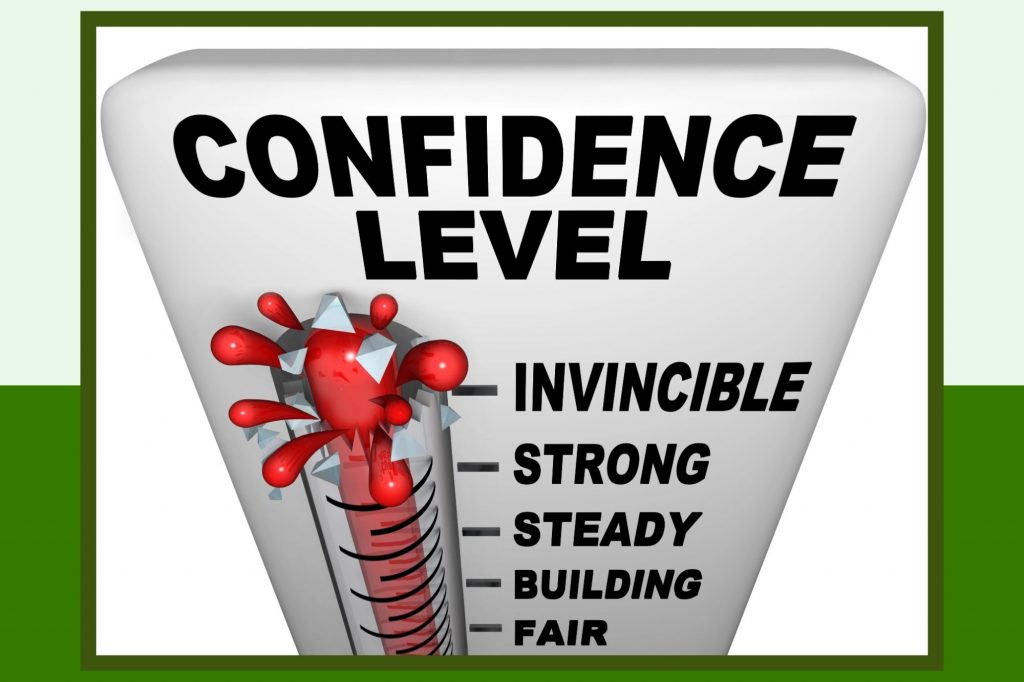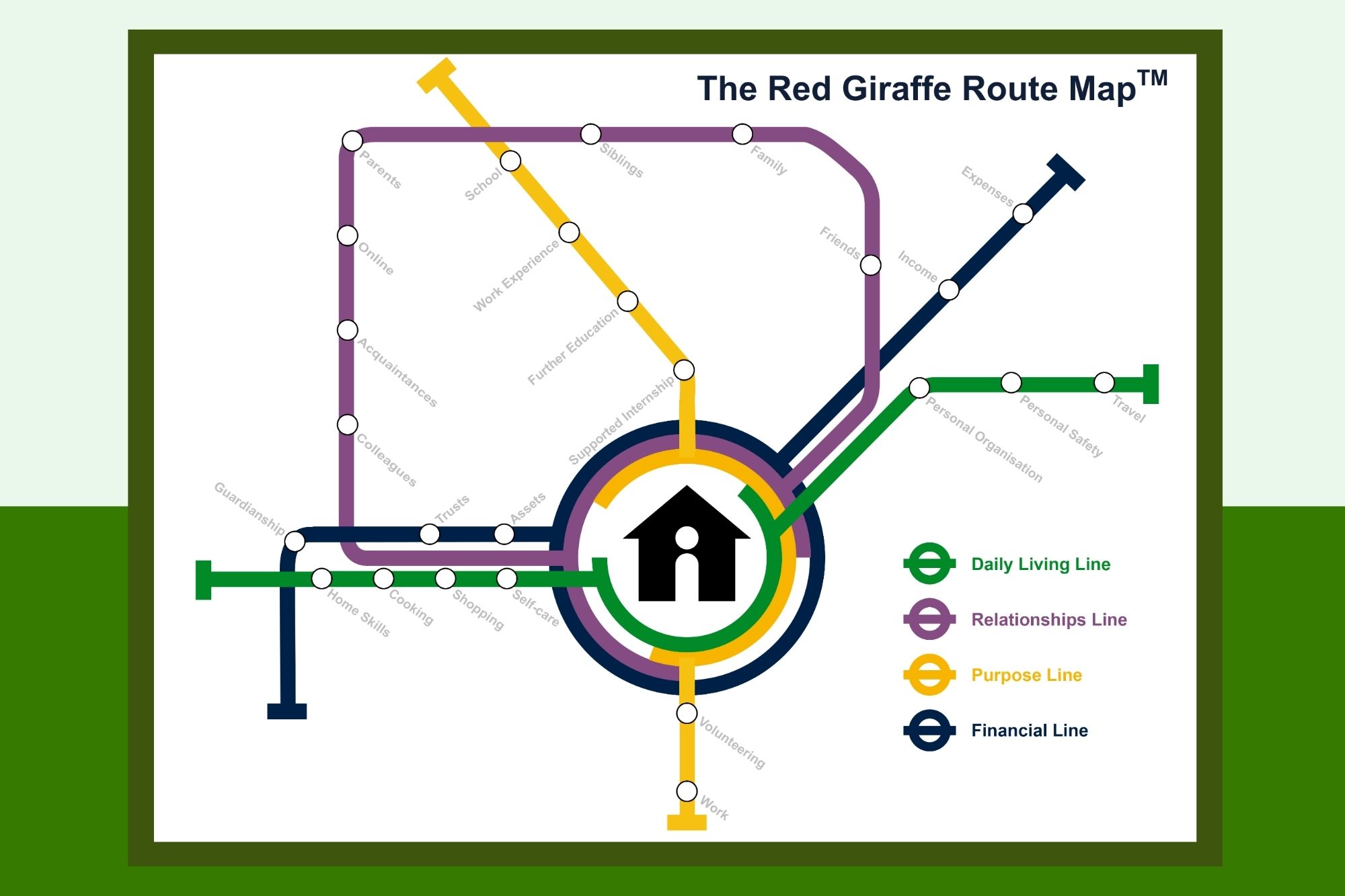Definition: a Vulnerable Person’s Trust is a special type of trust that allows a parent, guardian, or family member to set aside assets (such as money, property, or investments) for someone considered vulnerable or incapable of managing their own finances. Apart from offering legal protection against financial abuse, assets placed in a trust don’t impact on eligibility for means-tested benefits.
The definition of a vulnerable person’s trust sounds more complicated than it is, but they can be an important part of future planning. In this article I’ll explain why I set up a trust fund for my child with additional needs, and how it could benefit your child.
I must confess I used to think trusts were complicated and difficult to set up.
Yet, at the back of my mind, I knew that one day I’d set up a trust fund for my child with additional needs. However, doing it took longer than it should have. I agonised and procrastinated over it. I focused on the difficulties.
Then four years ago I took the plunge. I spoke to a financial adviser and got a lawyer to draw up the trust deed (the legal document). And now I’ve been through the process, I understand the benefits of a trust and believe it’s one of the most important financial decisions I’ve made about my daughter’s future. She will be able to afford her life when I’m no longer around to support her.
One key reason a trust can offer her financial security is because when we place assets placed in a trust, they don’t legally belong to our children. That small detail has massive implications for government benefits, financial protection, and long-term financial security.
The Trust Owns the Assets

Image by Pogonici, Deposit Photos
Each year both my wife and I deposit the maximum amount allowable into my daughter’s trust’s bank account. Once I do that via a bank transfer, I’m handing over ownership of that money to the trust. Then the trustees manage that money for the benefit of my daughter.
What this means is that my daughter doesn’t legally own the money, even though she can still benefit from it. And that’s an important distinction.
If I’d given this money to her directly, it would be hers. If later in her life she needs to apply for any means-tested benefits, having this money in her bank account may disqualify her from applying. This is also the case for other assets, like a property.
However, because the trust assets don’t count as my daughter’s personal wealth, she would still be eligible for those benefits. The good thing is the trust can still give her extra financial support, pay for a better quality of life, or fill the gaps that benefits can’t, but without impacting her eligibility.
That means if your child has ongoing care needs, receives a huge compensation claim, or has grandparents wanting to give some of their estate to your child, this might be a reason to consider a trust. This is one of the main reasons why I set up a trust fund for my child with additional needs.
Other Protections Trusts Offer

Image by Tallars, Deposit Photos
Beyond preserving eligibility for support, setting up a trust gave me peace of mind in other important ways. I didn’t just want to leave money behind; I wanted it ring-fenced so it will always benefit of my daughter.
1. Guarding Against Debt
Let’s be honest, not every one of our children has great money management skills. Managing money can be challenging and requires skills not everyone has. But I want to know that if my daughter ever got into financial trouble, she wouldn’t lose her home or inheritance.
With the trust, even if she unintentionally gets into debt, creditors can’t touch the assets held within the trust because they are not legally hers. The home she lives in stays protected along with any money we have left in the trust for her.
2. Preventing Exploitation
You don’t need to be vulnerable to fall victim to scams. These days we’re constantly on our guard against it. I, someone who considers themselves fairly financially literate, sometimes have to think twice before responding to an email or handing over money.
My daughter is more trusting of people than I. Sadly, not everyone she meets in her life will have good intentions.
However, because my daughter doesn’t control the trust assets directly, it’s much harder for someone to manipulate her into giving away her inheritance or making unwise decisions. The trustees act as a buffer, a line of defence.
3. Adding Legal Protection in Breakups or Divorce
One thing I never considered is how a trust can offer protection if relationships doesn’t last. I don’t necessarily think my daughter is about to get into a long-term relationship anytime soon. But if she were, and that relationship doesn’t last, the trust would still be for the benefit of my daughter. Almost certainly, her trust would keep assets we have placed into it. It wouldn’t be considered “marital property,” so an ex-partner can’t claim half.
This kind of legal separation offers another layer of financial security that she wouldn’t have if I’d just left money or assets like a property to her directly. This is another reason why I set up a trust fund for my child with additional needs.
History of Trusts

Image by Graham Caldow, Canva
At first, I felt a bit intimidated by the idea of setting up a trust. But once I understood the fundamentals, it began to make sense.
Trusts date back to Roman times. Then only citizens of Rome could own property. When citizen soldiers were sent to defend the Empire, they wanted to make sure their families would be looked after if they didn’t return. So they transferred ownership of their property to a trusted friend.
A similar thing happened in 12th Century England. Trusts were used during the crusades. Knights would transfer ownership of their estates to trusted friends while they were away, with the understanding they would get their estate back upon their return.
Problem was, these Knights often weren’t given back their estates when they returned. They took their dispute to the King, after all they’d just been off to a holy war. The King then passed the matter on to the Lord Chancellor’s court. Usually, ownership was returned, and trust law started to develop in a more structured way. This led to the development of the formal structure of trust law.
So, while the laws around trusts vary, depending on which country you live in, the basic idea remains the same.
How Trusts Work

Image by Artursz, Deposit Photos
A trust is a legal arrangement where one person (the settlor) places assets (like money, property, or investments) into the care of others (trustees) to be managed for the benefit of someone else (the beneficiary), often your child.
So, in real terms, the three basics are:
- I’m the settlor. I created the trust and added the first asset – a cash deposit.
- My daughter is the beneficiary. She benefits from the trust without owning the assets.
- The trustees. At the moment that’s my wife Debra and I. We are the decision-makers, even though we don’t own the assets we’ve given the trust. However, in time, we will have to replace ourselves as trustees because our daughter will hopefully outlive us.
Setting Up A Trust
When I look back on it, there are 5 steps I followed:
- Decide what you want to put in the trust. For me, it was a combination of cash and assets, life insurance, and our family home.
- Decide when it starts. A trust can start after you pass away (via your will) or during your lifetime. I decided to start my daughter’s trust now so I could “gift” money to it. Also I wanted to ensure it was up and running smoothly.
- Choose your trustees carefully. Most trusts have at least two trustees. If you’re starting your trust now, you are most likely to be the trustee in the beginning. But sooner or later you will have to think about future trustees – the hardest part (more on this below).
- Work with a lawyer. Trusts are a legal document, and you need someone experienced in disability law and trust law to draft the trust deed.
- Write a letter of wishes. This letter isn’t legally binding, but it is an opportunity for you to explain how you would like future trustees to manage and use the funds for your child’s care and support.
Following these steps makes setting up a trust simple, but it’s not easy. There are two chief difficulties. First finding the right lawyer for you. In the UK, you could contact the Law Society as a starting point www.lawsociety.org.uk or the Society of Trust and Estate Practitioners www.step.org. In other parts of the world, I’m sure there are professional bodies that can offer advice.

Image by Zorabc, Deposit Photos
Second, deciding on trustees. If you set up your trust so it’s active now, you might be the first trustees. But you will need to decide follow-on trustees.
These were two difficulties I had when I set up a trust fund for my child with additional needs.
Choosing Trustees
Choosing trustees is the possibly hardest part of setting up a trust. The people you appoint as trustees will have control over everything, so it’s a big decision. They manage the trust, make financial decisions, and handle legal reporting. I’ve spent many, many hours agonising over this decision.
Basically, there are two types of people you can choose from:
- Professional trustees. These include lawyers, financial advisers, or trust companies. They bring expertise, objectivity, and ensure compliance. But they do come at a cost. Fees vary, but over the years they can add up.
- Non-professional trustees. Friends or family members who are willing to serve for free or minimal cost. They may know your child personally and understand their needs better than a professional trustee, but they may lack financial or legal expertise.
In many ways, deciding who should be a trustee is harder than creating the trust itself. One common mistake is to assume that close family members, like siblings or cousins, are automatically the best choice. Family dynamics can be complicated, and trust disputes can become emotional. It may be wiser to consider someone slightly more neutral, or to pair a family member with a professional to strike a balance.
So how do you choose? I’ve thought long and hard about this. Some questions I ask when considering non-professional trustees are:
- Will they outlive me and be around for my child for the long term?
- Are they responsible and financially competent?
- Are they willing and able to take on a time-consuming, sometimes complex role?
- How organised are they to manage paperwork and reporting duties?
- Will they follow my intentions, act impartially, and with care?
Some choose a mix of one professional and one non-professional, such as a family member. This may give a balance of professional oversight with personal connection. I try to keep in mind that trustees are the stewards of my daughter’s future financial security.

Image Iqoncept, Deposit Photos
Final Thoughts
I used to think trusts were just for rich people or those with complicated finances. Now I have set up a trust fund for my child with additional needs, I know better. They are for parents who want to plan ahead, protect their children, and give them the best possible future.
While I set up a trust for financial reasons, I’ve found there are also emotional benefits too. For years, like many parents, I worried about my daughter’s financial future. I don’t think that worry ever completely goes away. However, I do feel more confident than before, which was an unexpected benefit of setting up her trust.
If you’re thinking about setting up a trust, talk to a lawyer who understands family or disability law. The process is simpler than you might think, even if deep thought is required. But the financial benefits and protection should last a lifetime.
Please feel free to comment below.
The above is an adapted section of Chapter 4 of my book What’s Possible? Plan a Better Future for Your Young Adult with Additional Needs If you have a copy, could you do me a small favour please? Could you review it on Amazon so that other parents and carers may find it more easily. Thank you 🙏.

Image by Outchill, Deposit Photos
Disclaimer: everything that follows is for educational purposes only. It is not intended to be financial advice and should not be used as such. You should seek professional advice from someone suitably qualified, who can become familiar with you, your family, your family’s finances, and your young adult’s hopes and dreams for their future. Advice must be tailored specifically to your circumstances.



